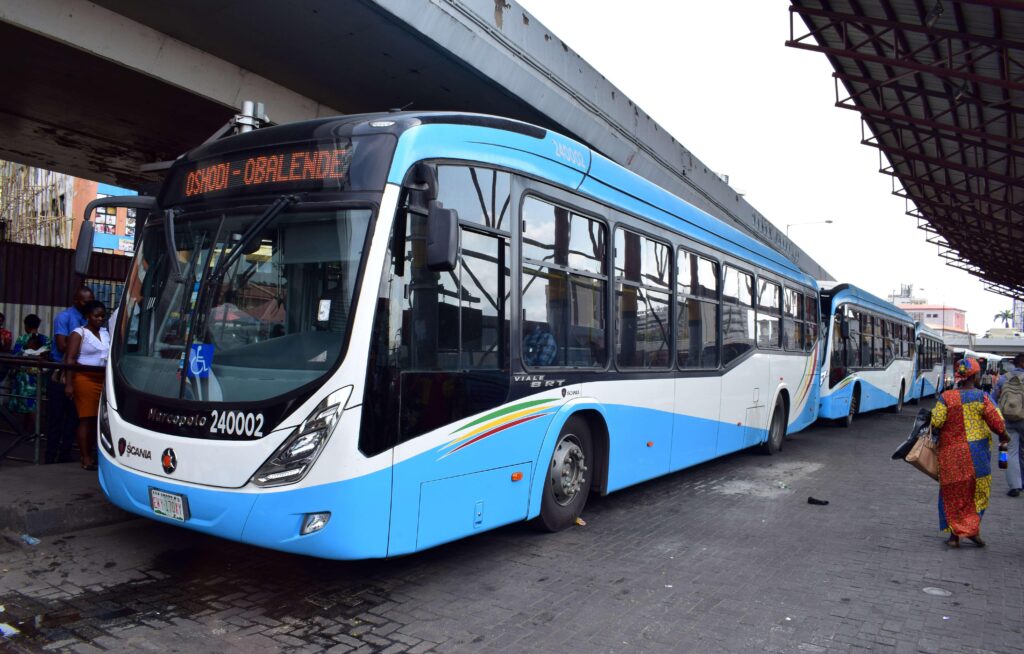Lagos BRT Driver Sentenced to Death in the Murder of Bamise Ayanwola
In a landmark judgment that has sent shockwaves throughout Nigeria, a Lagos State High Court has condemned a Bus Rapid Transit (BRT) driver to death by hanging for the brutal killing of 22-year-old Bamise Ayanwola. This verdict brings closure to a case that began with her mysterious disappearance in February 2022 and ignited nationwide demands for improved safety within public transportation. The court’s decision highlights not only the gravity of this tragic event but also underscores urgent calls for enhanced passenger protection across Nigeria’s urban transit systems.
Case Details and Evidence That Led to Conviction
The accused, Olasunkanmi Mafe, was found guilty following compelling evidence presented during the trial. Witness testimonies were instrumental in reconstructing Bamise’s final movements on that ill-fated night, while forensic analysis—including DNA samples—and CCTV footage played pivotal roles in securing Mafe’s conviction.
The prosecution painted a grim picture of the crime’s brutality, emphasizing how it exposed systemic vulnerabilities within Lagos’ public transport network. Family members expressed mixed emotions—relief at justice served but sorrow over their irreplaceable loss. Key aspects highlighted during proceedings included:
- Chronology of Events: Eyewitness accounts helped establish an accurate timeline surrounding Bamise’s disappearance.
- Forensic and Visual Proof: DNA matches and surveillance recordings corroborated critical details implicating Mafe.
- Public Response: The case reignited widespread demands for stricter security protocols on public transit vehicles throughout Lagos.
Nationwide Outcry Spurs Calls for Safer Public Transportation Systems
Bamise Ayanwola’s untimely death while commuting via Lagos’ BRT system sparked intense national outrage, shining a spotlight on glaring deficiencies in passenger safety measures. Her murder became emblematic of broader concerns about personal security faced by commuters—especially women—in densely populated cities across Nigeria.
This rare instance where swift judicial action resulted in capital punishment is being hailed as a milestone by advocates fighting violence against women. However, it simultaneously exposes systemic lapses that allowed such tragedies to occur unchecked within public transport frameworks.
The collective grief morphed into activism as citizens and organizations rallied together demanding comprehensive reforms including:
- Tightened Regulatory Oversight: Calls for rigorous supervision over all modes of public transportation services nationwide.
- Sophisticated Safety Protocols: Implementation of gender-sensitive measures ensuring secure travel environments especially during late hours.
- Accountability Mechanisms: Holding transport operators responsible through transparent monitoring systems and penalties where necessary.
Civic groups have organized protests urging government agencies not only to deliver justice but also proactively prevent future incidents through policy reforms and community engagement initiatives. Social media platforms have amplified these voices, creating sustained pressure on authorities to prioritize commuter welfare above all else.
Strategies To Bolster Driver Responsibility And Passenger Safety In Public Transit
The tragedy involving the Lagos BRT driver underscores an urgent need for comprehensive strategies aimed at enhancing both driver accountability and passenger protection across Nigeria’s mass transit networks. Recommended interventions include:
- Diligent Screening Processes: A mandatory regime encompassing criminal background checks alongside psychological assessments should be instituted before hiring drivers to ensure suitability for such critical roles.
- Continuous Professional Development: An ongoing curriculum focusing on defensive driving techniques, customer relations skills, mental health awareness, and emergency response preparedness must be enforced regularly among operators.
- Advanced Monitoring Technologies: The deployment of GPS tracking devices coupled with onboard cameras can provide real-time oversight into driver conduct while furnishing crucial evidence when incidents arise—deterring misconduct effectively.
..... Additionally,
fostering transparency through accessible complaint channels empowers passengers themselves; enabling them to report unsafe behavior promptly without fear or hesitation.
Furthermore,
launching targeted awareness campaigns highlighting vigilance tips—for example recognizing suspicious activities or knowing emergency contacts—can significantly elevate communal safety consciousness.
Collaborative partnerships between transit authorities, law enforcement agencies, civil society groups,and local communities will be vital toward embedding these reforms sustainably.
Recent data from similar urban centers globally show that integrating technology-driven monitoring combined with robust training programs reduces incident rates by up to 40%, demonstrating promising potential if adopted widely here.
Final Thoughts: Implications Of The Verdict On Public Safety In Nigeria
The sentencing handed down against the Lagos BRT operator responsible for murdering Bamise Ayanwola represents more than just legal closure—it signals an urgent call-to-action regarding commuter safety nationwide. This high-profile ruling reverberates beyond Lagos’ borders as it spotlights persistent challenges related to crime prevention within urban transportation networks across Nigeria.[1]
This outcome serves both as reassurance that justice can prevail amid complex cases involving vulnerable victims—and as stark evidence highlighting gaps requiring immediate reform efforts from policymakers.[2]If implemented effectively, enhanced regulations could drastically reduce risks faced daily by millions relying on buses like those operated under the BRT scheme.
Nigeria stands at crossroads where strengthening governance structures around law enforcement coordination with transport providers will determine future outcomes concerning citizen security inside bustling metropolitan areas.[3]This verdict may well catalyze broader conversations about protecting human rights within shared spaces — ultimately shaping safer journeys ahead throughout Nigerian cities struggling under rapid population growth pressures.[4]

